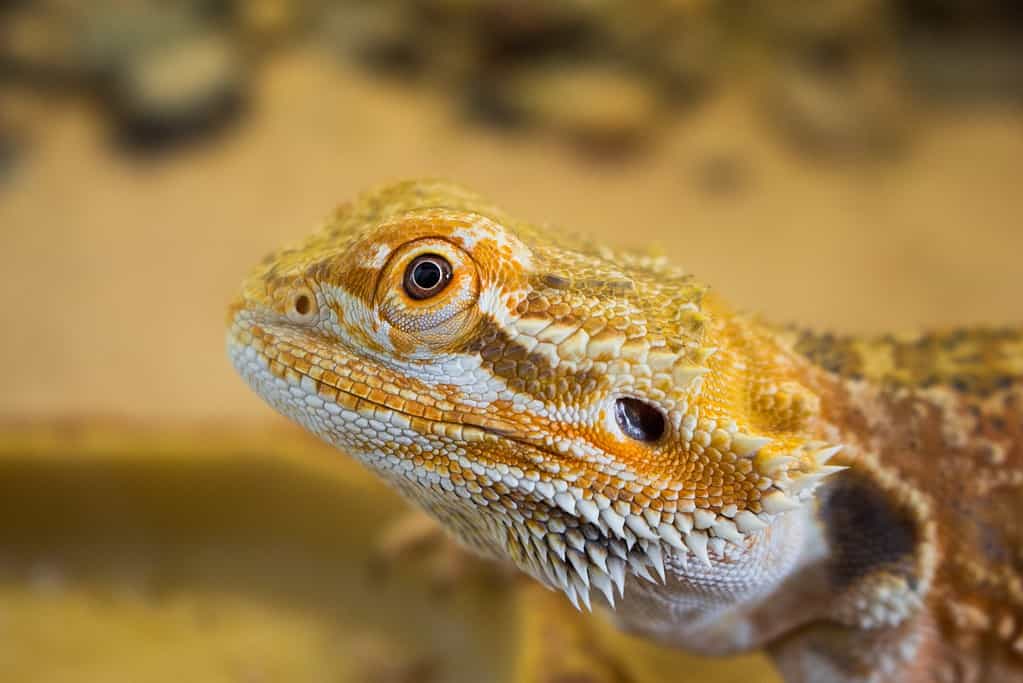When it comes to pet reptiles, bearded dragons are one of the most popular choices among reptile enthusiasts and novice pet owners alike. These fascinating creatures, known for their unique appearance and engaging behaviors, often raise questions about their sociability. As a result, many potential owners wonder whether these reptiles thrive in social environments or prefer solitude. This article will explore the social tendencies of bearded dragons, examining their interactions with humans and other reptiles.
Bearded dragons (Pogona vitticeps) are native to Australia and have gained a reputation for being relatively docile and friendly compared to other reptiles. Unlike some reptiles that are solitary by nature, bearded dragons exhibit a range of social behaviors, which can be quite intriguing to observe. However, it is essential to understand the nuances of their social interactions, as not all bearded dragons exhibit the same tendencies. This article will delve into the various aspects of their social behavior, providing insights into whether bearded dragons are truly social animals.
Through our exploration, we will address common questions about their social nature and offer advice for potential owners, helping them create the best possible environment for their scaly companions. So, are bearded dragons social? Let’s find out the answers together!
What Are the Social Behaviors of Bearded Dragons?
Bearded dragons display a variety of behaviors that can be interpreted as social. Here are some notable examples:
- Head Bobbing: This behavior is often a form of communication among bearded dragons, indicating dominance or submission.
- Arm Waving: A bearded dragon may wave its arm to show submission, especially in interactions with a more dominant dragon.
- Color Changes: Bearded dragons can change colors based on their mood or environment, which can communicate their feelings to others.
Are Bearded Dragons Friendly Towards Humans?
Many bearded dragon owners report that their pets can be quite friendly. They often enjoy being handled and will seek out human interaction. Factors that contribute to a bearded dragon's friendliness include:
- Socialization: Regular handling from a young age can lead to a more sociable pet.
- Individual Personality: Just like humans, each bearded dragon has its own unique personality traits.
- Environment: A calm and safe environment can help a bearded dragon feel comfortable and more inclined to socialize.
Can Bearded Dragons Live Together in Groups?
While bearded dragons can exhibit social behaviors, housing them together can be risky. Here are some considerations:
- Territoriality: Male bearded dragons can be particularly territorial, leading to aggressive behavior.
- Stress Levels: Crowding can cause stress, negatively impacting their health and behavior.
- Health Risks: Close contact can increase the risk of transmitting diseases among dragons.
Do Bearded Dragons Enjoy Interaction?
Many bearded dragons seem to enjoy interaction with their owners. Signs that your bearded dragon may be enjoying your company include:
- Curiosity: They may move closer to you or explore their surroundings when you are present.
- Relaxed Body Language: A relaxed posture and open mouth can indicate comfort.
- Seeking Attention: Some dragons may actively seek out your attention by climbing on you or coming close.
How Can You Encourage Social Behavior in Bearded Dragons?
If you want your bearded dragon to be more social, consider the following tips:
- Regular Handling: Handle your dragon gently and regularly to build trust.
- Positive Reinforcement: Use treats to reward friendly behavior.
- Respect Their Space: Allow your dragon to initiate interaction to ensure they feel safe.
What Are the Signs of Stress in Bearded Dragons?
Understanding the signs of stress is crucial for the well-being of your bearded dragon. Common signs include:
- Hiding: Excessive hiding can indicate stress or discomfort.
- Color Change: A darkening of their colors can signify distress.
- Appetite Loss: A refusal to eat can be a clear warning sign.
Conclusion: Are Bearded Dragons Social Animals?
In conclusion, while bearded dragons do exhibit social behaviors and can form bonds with their owners, they also have unique needs and boundaries. They are capable of enjoying social interactions, but they are not inherently social animals like dogs or cats. Understanding their social nature and providing a suitable environment will ensure a happy and healthy life for your bearded dragon. For those considering adding a bearded dragon to their family, being mindful of their social tendencies can lead to a rewarding relationship with these captivating reptiles.
Exploring The Intriguing World Of Kim Ji Won's Relationships
Unveiling Avril Lavigne's Daughter: A Look Into Her Life And Legacy
Exploring The World Of ZoeChip Movies: A Cinematic Journey

20 Cute Facts About Bearded Dragons Discover Walks Blog

Are Bearded Dragons Social?

Are Bearded Dragons Social or Solitary?